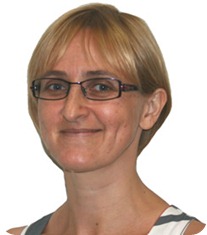Chronic suppurative lung disease, or CSLD, is used to describe a range of lung diseases characterised by a chronic wet cough and progressive lung damage. We are interested in the non-cystic fibrosis forms of the disease with a focus on bronchiectasis – the severe form of CSLD.
Bronchiectasis is a disease where the bronchi (the branches going into the lung) become permanently damaged. CSLD and bronchiectasis may be diagnosed in adults and children. Some adults diagnosed with the disease have had symptoms since childhood.
How many people does chronic suppurative lung disease affect?
The number of people affected differs across populations. Overall, CSLD is a disease of disadvantage which typically affects poorer people.
In Australia, CSLD disproportionally affects Indigenous children. If we look at data from Australia’s Northern Territory, the population-wide incidence of bronchiectasis in the first year of life is reported to be 118 per 100,000. In contrast, it’s estimated that 1 in 68 Indigenous children in the Northern Territory have CSLD, with 1 in 1,000 developing the disease before their first birthday.
Why are Indigenous children disproportionately affected by chronic respiratory infections?
The high rates of respiratory infections reported for Indigenous children reflect the social disadvantage that disproportionally affects this population. This is seen in other parts of the world too, where, in general, the highest rates of infectious disease are reported for the poorest and most disadvantaged people.
What is currently known about the causes of chronic suppurative lung disease?
Surprisingly, very little. For a long time paediatric CSLD and bronchiectasis have been considered “orphan” diseases as there has been little research in this field. We know that severe pneumonia in early life is a CSLD risk factor. It’s thought that conditions in the lung following severe pneumonia help establish a long-term lower airway infection. The body responds to this with an inflammatory response which can also cause damage the lung. If the infections aren’t treated or well managed the lung tissue may continue to be damaged. This can lead to loss of lung function and subsequent reduction in life-expectancy.
In terms of CSLD microbiology, we know from culture-based studies that several different bacteria may be present in lung washes of children with CSLD. DNA-based studies of other lower airway diseases have also shown that the bacteriology of chronic respiratory infections may be more complex than previously thought. We’re not sure if interactions between different bacteria and viruses may contribute to the disease pathogenesis, acute exacerbations or therapeutic effectiveness. This information is needed to provide an evidence base for future clinical management strategies.
What treatments are currently available for chronic suppurative lung disease?
Antibiotics are used to clear the infections underlying paediatric CSLD; however, the lung damage seen in this disease can be permanent. Our research group, led by Professor Anne Chang, is currently conducting clinical trials to determine optimal therapeutic strategies to effectively treat CSLD and hopefully prevent permanent lung damage.
There’s also growing interest in development of anti-biofilm therapies. Biofilm is a form of bacterial growth that shows increased antibiotic resistance. We think biofilm may be important to sustaining the long-term lung infections seen in CSLD patients. Anti-biofilm therapies may provide new tools to clear chronic lung infections; however, development of effective anti-biofilm therapies may be several years away.
You recently received a grant from the Ramaciotti Foundation. How are you planning on using this money?
The grant from the Ramaciotti Foundation will be used for a DNA-based study of bacteria and viruses in the upper and lower airways of paediatric CSLD patients. We will use an emerging DNA sequencing technology called metagenomics to directly sequence bacterial and viral genomes from clinical specimens. The genomic data will help us to understand the microbiology of CSLD and allow exploration of how microbial interactions may contribute to the disease.
What impact do you hope this research will have?
We hope this research will help establish an evidence base to understand how microbial interactions contribute to CSLD. The metagenomic data will also allow us to explore genes and gene functions that could be targets for new therapies. In the long-term, we hope that better understanding of CSLD microbiology will contribute to disease prevention strategies.
Would you like to make any further comments?
CSLD is a disease of disadvantage. While it’s important to research and understand CSLD microbiology, it’s also important that our biomedical research is done in conjunction with efforts to reduce Indigenous disadvantage. This is critical to achieving health equity between Indigenous and non-Indigenous Australian children.
Where can readers find more information?
More information about the Indigenous health research conducted at Menzies School of Health Research can be found at www.menzies.edu.au.
As part of the Australian Indigenous Health Infonet, the Lung Infonet also provides a good resource for anyone interested in CSLD or other lung conditions affecting Indigenous Australians. It can be found at http://www.healthinfonet.ecu.edu.au/chronic-conditions/respiratory.
For further information on the Ramaciotti Awards: http://www.perpetual.com.au/ramaciotti/
About Dr Robyn Marsh
 Robyn Marsh is a molecular microbiologist based at Menzies School of Health Research in Darwin. Her research uses a range of DNA-based methods to understand the development and progression of chronic lung and middle ear infections. Her research focuses on diseases affecting Indigenous children - a population that is disproportionately affected by chronic respiratory infections.
Robyn Marsh is a molecular microbiologist based at Menzies School of Health Research in Darwin. Her research uses a range of DNA-based methods to understand the development and progression of chronic lung and middle ear infections. Her research focuses on diseases affecting Indigenous children - a population that is disproportionately affected by chronic respiratory infections.